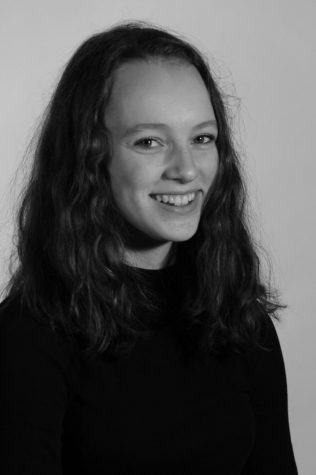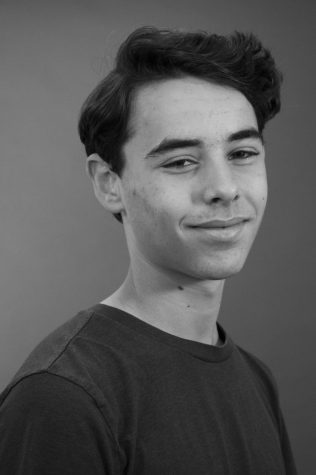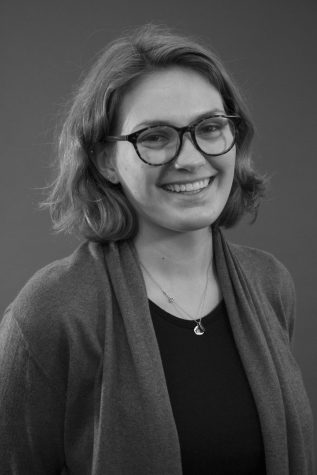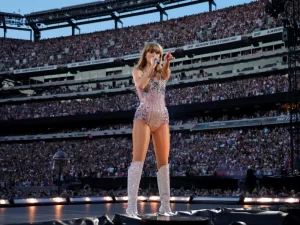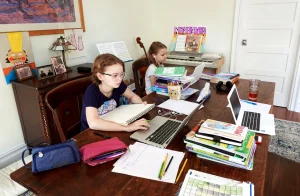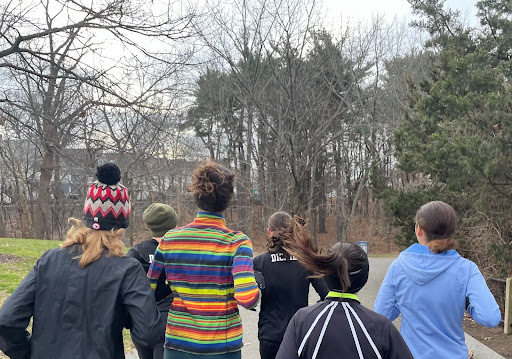What to Know Before the Cambridge Municipal Elections
September 28, 2017
The School Committee
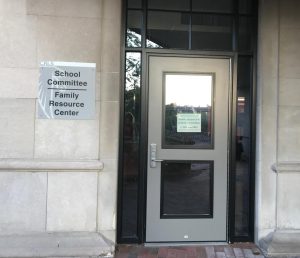
The School Committee meets twice a month at CRLS.
Juliana Vandermark — Cambridge municipal elections will be held the first Tuesday this November. They are held every two years, and during the elections, the citizens of Cambridge vote for their City Council and for their School Committee.
This year, twelve candidates are running for six seats on the Committee. A seventh seat is filled by the mayor of Cambridge, who serves as the chair of the Committee. Two CRLS students also participate in School Committee meetings each year as Student Government’s “Student Representatives to the School Committee.”
Juliette Low Fleury, a senior at Rindge, just began her role as a Student Representative. “Working with the School Committee is very interesting, because it really allows me to see what happens behind the scenes,” she said. “It is the responsibility of the School Committee Reps to keep the SC informed of the activities taking place at the high school and to raise any concerns that other students have.” The elected members of the Committee are in charge of deciding all general school department policies and budgeting. At their bi-monthly meetings, they discuss topics as specific as the third grade reading curriculum and as broad as the overall school climate in the CPSD. Members of the Committee can propose and review budgets and hold additional round-table meetings about key issues around the district.
Fred Fantini, one of the longest serving members on the Committee, believes the role of the Committee goes beyond just fixing problems: “I also think it’s important for School Committee members to be cheerleaders for our system, always being out in the community supporting our schools and promoting them. And I think it’s a place where a well functioning School Committee can be supportive of the difficult decisions that administrators and superintendents have to make.”
Paul Sullivan, a senior at CRLS and a second-term Student Representative, explained that “being a School Committee Representative forces you to step up to the plate and look at policies not only through a moral lens, which we are really quite good at doing at CRLS, but also through a pragmatic one: What is the timeline for this policy? Who are the stakeholders for this policy? Is it effective, efficient, and ethical? ”
Regular School Committee meetings are held on the first and third Tuesdays of each month during the school year at 6:00 PM in the Dr. Henrietta Attles meeting room at CRLS. These meetings are open for the public to attend, ask questions, or express any possible concerns during public comment.
As a student, there are many ways to impact the discussions the Committee has this year. If you will be 18 years old by November 7th, then you can vote for who you’d like to see on the Committee. Any student can also attend a bi-monthly meeting and contribute to the School Committee’s discussions in person, or they can contribute via an email to a Committee member or candidate.
“Working with the School Committee is the most important and influential role in Student Government because it’s a position in which you not only have to lead, but also have direct contact with the policy makers and career professionals who run our school district,” Sullivan explained. “You serve as an integral connection between the 2,000+ students at CRLS and the people who shape their day-to-day lives; in effect, you are a microcosm of the student body and their voice.”
The City Council
Nathan Kolodney — The Cambridge City Council, which derives its power from the City
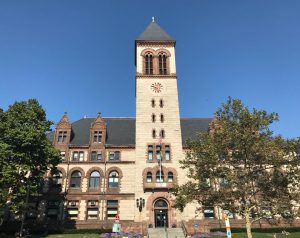
City Hall is located in Central Square.
Charter and Constitution of the Commonwealth of Massachusetts, is the section of the city’s government that deals with policy decisions, ordinances and regulations for public improvements, and expenditures. Essentially, all major changes to city-run services are decided by the City Council.
The City Council consists of nine members, including Mayor Denise Simmons and Vice-Mayor Marc McGovern. Each member’s term lasts two years before they can be up for re-election. This year, 26 people are running for City Council. Even though each term is fairly short, there is no limit as to how many times a candidate can run.
The voting system used for Cambridge City Council elections—as well as Cambridge School Committee elections—is called proportional representation. With this system, voters can vote for as many candidates as they want as long as they rank them from their first to last choice. After a candidate reaches a certain quota that allows them to join the Council, additional ballots with that candidate listed as the voters’ number one pick will count the voters’ second pick instead, and so on. This system is meant to give the majority control while still giving minorities representation.
Junior Student Government Representative Grace Austin commented on the similar voting system used in Student Government elections, saying, “The ranking system used at Rindge is important because it allows for fairer representation of what voters want. Student Government adopted this voting system from the city, which is one of the only cities in the country to use it.”
It is important to note that the Cambridge City Council is fairly unique in a few ways. For one, the city budget is not actually determined by the Council. The City Manager, Louis DePasquale, and the Budget Committee create the budget, which is then proposed to the Council. Additionally, the mayor is seen more as a peer to the City Council in Cambridge than in other towns. One Cambridge City Councillor is voted into the position of mayor by their fellow City Councillors every two years, and they work hand in hand with the Council throughout their term in office.
Overall, the goal of the Council is to promote the welfare and success of Cambridge residents. This means supporting communities by maintaining neighborhood vitality and embracing the cultural and socio-economic diversity of the city. This also means promoting public safety, funding strong human services, and creating affordable housing for Cambridge residents.
When ask asked what it meant to be a City Councillor, Vice Mayor Marc McGovern told the Register Forum, “The City Council sets the policies for the city of Cambridge. The role is very important because it impacts everything from school spending to housing to what jobs are available through the city.”
Not only does the Council affect Cambridge, it also affects CRLS itself. When it comes to the effect on Rindge, the School Committee is more directly influential in decision-making, but the City Council plays a valuable role in this process, too. The City Council approves the city budget, which includes the school budget, so they play a key role in deciding how much money the School Committee has to work with each year.
Understanding the City Council is essential in understanding politics on a local level. The Council meets in City Hall in Central Square and almost all meetings are open to the public. The details of these meetings are on the City Council website. In fact, there is a designated time for members of the public to speak freely about their opinions on the Council’s agenda for the city. This, in itself, is a great way to contribute to local politics, but if you are over the age of 18, the best way to get involved is to vote.
This piece also appears in our September print edition.

